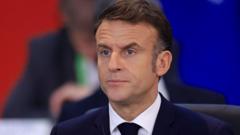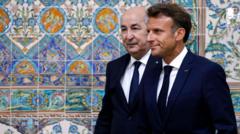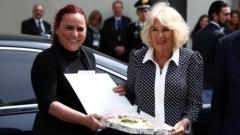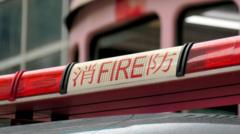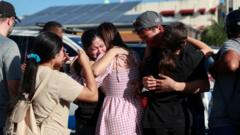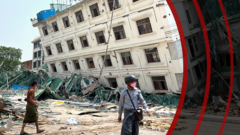As Auschwitz-Birkenau marks 80 years since its liberation on January 27, 1945, approximately 50 survivors return to remember the atrocities committed within its walls, led by their poignant stories as political leaders attend the solemn commemorations.
Commemorating 80 Years of Liberation: Survivors Gather at Auschwitz
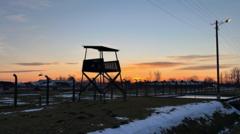
Commemorating 80 Years of Liberation: Survivors Gather at Auschwitz
Survivors, dignitaries, and international leaders unite to honor the memory of those lost at Auschwitz-Birkenau on its 80th liberation anniversary.
As the world reflects on the harrowing events that transpired at Auschwitz-Birkenau, a poignant gathering marks the 80th anniversary of the camp's liberation on January 27, 1945. Approximately 50 survivors, now mostly in their late 80s and 90s, return to the site to share their experiences and commemorate the lives lost during one of humanity's darkest chapters.
Accompanying the survivors will be a range of dignitaries, including King Charles, French President Emmanuel Macron, and German President Frank-Walter Steinmeier. Yet, it will be the survivors' voices that resonate throughout the day, ensuring the memories of those who perished are not forgotten. Jona Laks, aged 94 and a former inmate who survived Josef Mengele’s experiments, emphasizes the importance of remembering history to prevent similar atrocities in the future. “Every soul on this earth has the right to live,” she urges, encapsulating the underlying message of the memorial.
Despite milder temperatures melting much of the recent snowfall, the frailty of many attendees has necessitated the provision of a large heated tent over the "Death Gate," the entrance to Birkenau. Commemorative events will commence with a wreath-laying ceremony at the "Death Wall" where countless Polish prisoners, Jews, and Soviet POWs were executed.
This anniversary differs from those in years past—decades ago, awareness was minimal compared to today's international attention. Historian Susanne Willems, who has spent years educating others about the implications of the Holocaust, expresses her mission to relay the survivors' stories to ensure they are not lost to time.
Notably, this year’s event will be devoid of political speeches from world leaders, particularly due to the ongoing conflict in Ukraine, which has affected international relations. Survivors remember a time of horrendous human loss, revealing details of their harrowing experiences at Auschwitz and the fate of their families.
Historically, Auschwitz-Birkenau has become a primary symbol of the Holocaust, with nearly 1.1 million victims, most of whom were Jewish. Part of the commemoration will involve recognizing the overlooked identities of those who suffered and died in the camp, including Polish prisoners, Roma, Soviet prisoners of war, and others targeted by the Nazi regime.
As the gates of Auschwitz remain closed for the day, visitors have been observed exploring the museum and surrounding sites, connecting with the poignant history. Many young people, confronted by the stark reality of the site, express a deeper understanding of the Holocaust's impact, renewing the commitment to remember and educate future generations.
This gathering serves as a reminder of the solemn responsibility to recount the past truthfully and ensure that the horrors of Auschwitz never happen again. Survivors like Jona Laks and Liliana Segre, who has chosen to commemorate in Rome due to her experience of antisemitism, symbolize the resilience of the human spirit and the dire need for remembrance in the face of rising far-right movements in Europe.



